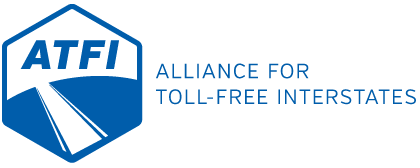By The Oklahoman
The Senate Environment and Public Works committee, chaired by Sen. Jim Inhofe, R-Tulsa, is considering an expansion of an interstate tolling pilot program that opens the door to troubling revenue collection schemes and economic manipulation. This would clearly violate the spirit of the Commerce Clause of the U.S. Constitution, if not the law itself, and could lead to border tolls of $10, $50, $100 or more.
The interstate highway system is essential for commerce and therefore it is the federal government’s constitutional responsibility to fund and maintain it. Any argument for foisting that obligation onto the states is a dereliction of duty. The idea that Congress is “giving states the option” or that this is about “states’ rights” is a thinly veiled way of saying Congress would prefer to avoid hard decisions about highway funding rather than actually address the billions of dollars in unmet needs.
The pilot program the Senate committee seeks to expand has existed since 1998. Known as the Interstate Reconstruction and Rehabilitation Pilot Program (ISRRPP), it has allowed three states to pursue tolls on existing interstates. In its 17 years, not a single existing interstate has been tolled successfully under the pilot program due to intense public opposition. The ISRRPP has tested interstate tolling’s viability and found that it won’t solve our transportation funding problem.
Expanding tolling on currently toll-free interstates would create many harmful unintended consequences. Drivers are proven to divert to secondary roads to avoid paying an interstate toll. This traffic diversion increases accident rates and congestion on local roads, slows first-response times, and accelerates wear and tear on roads not built to handle heavy traffic. Repair costs for these damages often fall to localities, so tolling ends up passing the buck instead of solving the problem.
Tolls are inefficient compared to other revenue sources. This is primarily a result of the large government bureaucracies and expensive infrastructure expenditures needed to process tolls. Even electronic tolling, which seeks to decrease collection costs, can waste up to 20 percent of toll revenue, compared with an administrative cost of 1 percent for the fuel tax.
Unfortunately, the fuel tax has lost 40 percent of its purchasing power since it was last raised in 1993. It collects money efficiently, equitably, immediately, has a low evasion rate, and would actually solve our transportation funding needs if Congress were to take courage, raise it, and index it so it doesn’t degrade again. The real road funding solution isn’t rocket science, it’s just politically unpopular.
Congress has a duty to protect interstate commerce. Expanding interstate tolling runs contrary to that obligation. Increasing the number of slots in the failed ISRRPP pilot program doesn’t solve the highway funding crisis. Members of Congress shouldn’t be allowed to pretend that passing off their responsibilities to states is a substitute for doing their jobs. Interstate tolling authority should be repealed, not expanded.
Peterson is CEO of Tulsa-based Melton Truck Lines.

